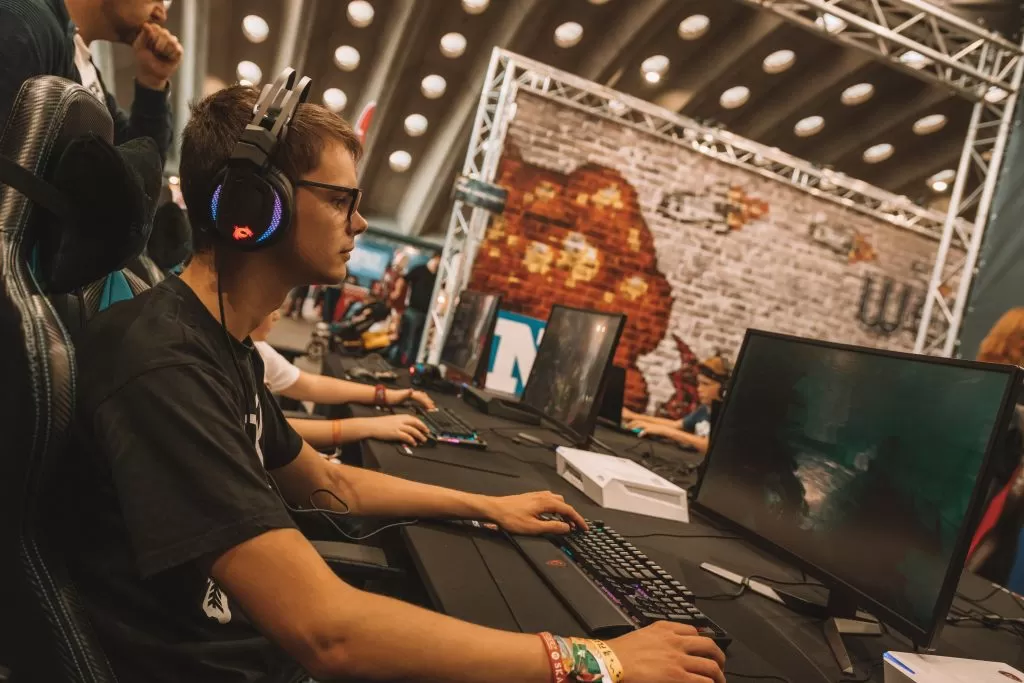
With the growth of esports, the terms Gaming House and Gaming Office became part of the newsroom routine. Such concepts are nothing more than structures set up to encompass an entire team/team, functioning as a place of work and residence, simultaneously. In the present text, we will address some aspects in more detail, starting from the premise of a sports contracting regime (CLT).
As we saw earlier, certain teams/teams may choose to use Gaming Houses or Gaming Offices, in order to optimize the performance of the team. At first glance, the Gaming Houses seem the ideal world not only for the club/team/team, but also for those who dream of the life of a professional player, but caution is necessary when making this decision, either by the team or by the player.
In fact, the Gaming Houses have some benefits such as ease of communication, improved team engagement, maintenance of focus on training, better ability to optimize training schedules, etc.
However, if certain precautions are not observed, this environment can end up becoming a harm for both the players and the team/club/team, since numerous problems can arise from an environment that mixes concepts of housing and work simultaneously.
A simple exercise is to ask ourselves: would we be able to live in our place of work? It may seem a bit scary, and in practice, that’s basically what happens. Players live where they work.
Image: Gorodenkoff/shutterstock.com
As much as the players are in their “natural habitat”, having fun and playing with their friends, it is necessary to keep in mind that that place is also – or primarily – a work environment, and like any work environment, certain precautions must be taken. be taken to avoid routine problems.
Generally, the objective of every team is to strengthen itself in the scenario and, consequently, to obtain titles in the competitions that it proposes to participate. To make this possible, it is necessary that all members are, at least, on the same wavelength and focused on the same objective. But achieving this is not easy and many times it does not happen organically.
Therefore, regardless of the entire labor legal framework that involves this type of practice, one of the important measures is the implementation of a Code of Conduct, which is nothing more than a set of internal rules that must be observed by the team for the improvement of coexistence. Such regulation must reflect the guidelines and values exposed in the athlete’s employment contract. Below we enumerate some of the items that must permeate, not only the rules of conduct, but the entire concept of Gaming Houses/Gaming Offices:
- pre-set times: It is extremely necessary to define training schedules, meetings, study strategies and other work-related activities. This helps to maintain a proper routine and facilitates each member’s personal control over what to do in their leisure time.
- Psychological Accompaniment: As in any work environment, there is friction, stress, pressure, responsibilities, demands, etc. In addition, the personal problems of each athlete must be taken into account, since the overwhelming majority are young people, who are far from their parents, fighting for a dream. To reduce or alleviate these problems, psychological counseling is essential. Many times problems can be solved simply and effectively with the help of a suitable professional.
- Food: A fundamental part of maintaining the quality of life of any human being is the care with food. Therefore, it is no different when we talk about esports athletes. The food provided by Gaming Houseshould be balanced and suitable for those professionals, who should be individually monitored by a nutritionist.
- Physical activities: One of the tools for relieving mental stress is the practice of physical activities. In addition to being good for the mind, it helps in the athlete’s physical conditioning, providing more resistance to the countless hours of training to which they are subjected.
- Studies: Education is the basis of every society that seeks constant evolution. Thus, this item must be directly linked to the practice of esports, being a minimum requirement not only the enrollment of the athlete in the appropriate school schedule for his age, but mainly the observance by the athlete regarding his school performance.
- Personal Life x Professional Life: As crucial as the separation is in certain aspects, both end up mixing in terms of performance. When we talk about competitions, we must keep in mind that the quality of an athlete’s performance is intrinsically linked to their physical and mental condition and well-being, even when it comes to esports. The same player will have different performances depending on the amount of rest hours, the amount of substances ingested that affect his reflexes and motor coordination (alcohol) or even the quality of his food. Thus, it is useless for the team to do its part and provide an entire infrastructure so that the athlete can reach his maximum potential, without the athlete doing his part. Therefore, it is important that the athlete himself remains vigilant and committed to the project, so that his personal life does not affect his professional performance.
- Discipline and Respect: The coexistence between human beings is always a factor to be observed. Especially when we’re talking about young people who will literally spend the whole day (and night!) together. Respect and tolerance among all team members are key factors in maintaining the balance of the team. Gaming Housenot only during working hours, but mainly in spare time.
- Compliance with the Rules of Conduct: It is not enough for the rules of conduct to be stipulated. Athletes must comply with the guidelines, and it is up to the team to apply previously agreed penalties or sanctions, always in compliance with the relevant legislation. Finally, just the application of the penalty is not enough, it is necessary to raise the athlete’s awareness so that that type of problem does not occur again.
Aware of all these details and taking into account that all aspects have been observed, it is possible for a team to achieve a better performance using this type of structure. However, everything in the esports scene is constantly and rapidly evolving and it couldn’t be different with the Gaming Houses. This concept has been modified over the years, giving space to new ideas, such as Gaming Offices.
Gaming House and Gaming Office: pros and cons
The concept of Gaming Office drink a lot from the source of Gaming Houses, however, it is limited only to the professional part of the athlete, leaving the housing issue to the athlete himself. That is, athletes do not live in the same place where they work. Each one lives in their own places and commutes daily to the place of work (Gaming Offices). Basically, this is what happens on a daily basis to most of the world’s population in several and varied sectors and ports of work.

Image: Bert Christiaens/Pexels
As with any model, there are pros and cons. If, on the one hand, the athlete wins by getting rid of a mixed environment (home/work), on the other hand, he ends up losing in terms of daily commuting to work. There are those who consider that daily socializing helps in the synchronization of the team, but there are those who defend that it is necessary to maintain a division between home and work to maintain the mental balance of the athletes.
In addition, as we said, we are facing athletes who are mostly young people (some minors) who live in different parts of the country. On this prism, the Gaming House takes advantage, as it manages to gather minimum conditions for the subsistence of that team, even with its mishaps. On the other hand, we are dealing with people, and their well-being must come before any other business objective.
The truth is that so far no formula has been defined that proves to be more or less efficient, which leads us to the conclusion that the choice of format will depend a lot on the project that that team intends to develop and the peculiarities that permeate the situation.
Finally, we remind you that we are facing a completely new and constantly changing scenario, without specific regulations that can outline definitive guidelines, leaving only the debate and individual analysis of each case.
—
Marcelo Mattoso Graduated in Law from Unesa. He is a specialist in Digital Law (Innovation and Technology) by Fundação Getúlio Vargas, enthusiastic and specialized in consulting and litigation in the Games and Esports market; lawyer, partner and coordinator of the Games/Esports area at Barcellos Tucunduva Advogados.




